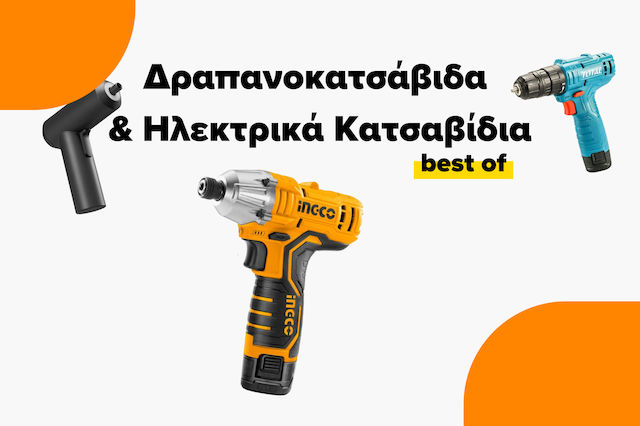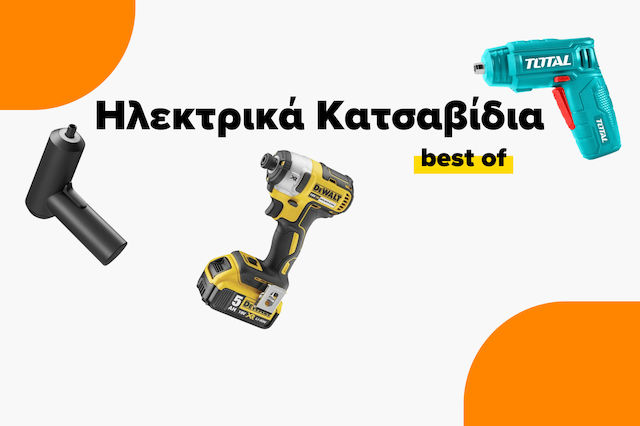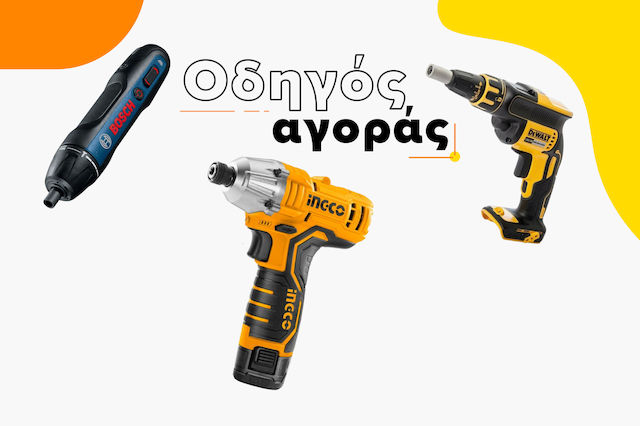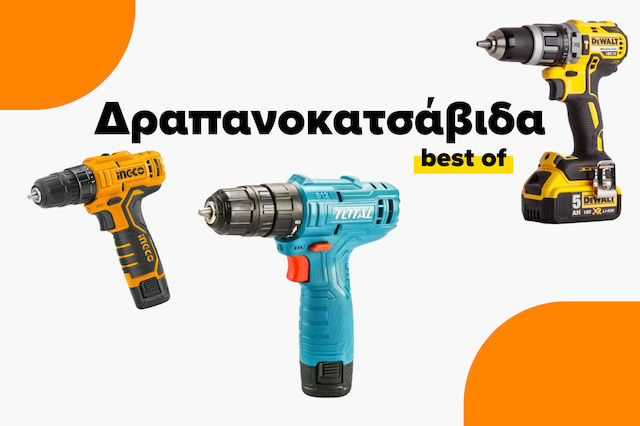Which drill or electric screwdriver is better for your needs?
Do you love doing DIY projects, do you just need one for the little details of the house or are you a professional?
Come and see their main features and which ones you should give more importance to, based on the use you want to make.
Type
Drill driver: Suitable for screwing-unscrewing and drilling holes in wood, metal and various construction materials.
Screwdriver: Suitable for screwing-unscrewing in simple tasks such as furniture assembly.
Impact Driver: Suitable for fast screwing-unscrewing even in the toughest construction materials.
Drywall Screwdriver: Ideal for working on drywall. The screw stops at the right point, so as not to penetrate the processing surface.
Voltage
One of the most important features of an electric screwdriver is its power. The voltage is measured in Volt (V). For light tasks at home, prefer a drill driver from 10.8V to 18V. If you are a professional who needs it for heavier tasks, prefer a 20V to 24V model.
Torque
It is the maximum force that the screwdriver can deliver, with which it can return a screw and is measured in Nm (Newton meters).
Up to 20Nm is enough to screw/unscrew small screws that do not require much force to rotate, while from 20 to 60Nm in addition to screwing, you can also perform drilling tasks, while more than 60Nm you will mainly find in impact drivers, which can screw/unscrew screws that require a lot of force to rotate, such as bolts.
Maximum Motor Speed
It is the maximum rotational speed of the motor in revolutions per minute. For drilling tasks, a speed of up to 1500rpm is perfectly satisfactory, as above that there is a risk of breaking the drill due to the increase in temperature, while for screwing tasks, higher speeds can be used, especially if the material is soft such as wood or drywall.
What do you intend to use it for?
Check the features that you should pay more attention to, based on the use you plan to make.
Very basic tasks at home
If you are looking for an electric screwdriver for fairly simple tasks at home, such as furniture assembly, prefer an electric screwdriver with a voltage from 10.8V to 18V and torque of up to 20Nm, if you just want to assemble furniture or up to 60Nm, if you also want to drill holes in the wall or other construction materials.
Prefer battery-powered tools, so you can easily move them to any location!
DIY projects
If you love woodworking and metalworking projects, and you need a tool that can handle any creative idea that comes to mind, then choose a drill driver with a torque of about 60Nm and at least 18V voltage.
Prefer a drill driver with interchangeable head, speed adjustment, and ideally impact function!
Professional use
If you are a professional, the tool you choose must be able to handle all types of construction materials and conditions, so a impact driver might be a good choice. Make sure it has a power of at least 20-24V and a torque of at least 60Nm.
Remember, there may be differences in a product based on its overall characteristics and construction. Before making a decision, read reviews from other users to see their opinions as well!
New: Check out now also used tools at Skoop by Skroutz, the new second-hand selling service of Skroutz!





Be the first to leave a comment!